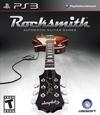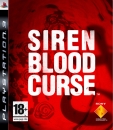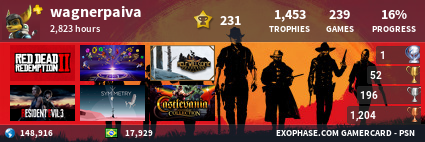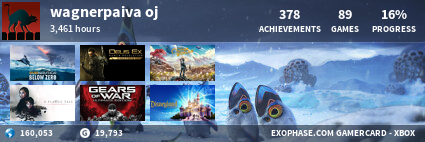Microsoft's health revolution is here, starting with a $199 fitness tracker
Microsoft Health, the Microsoft Band, and a plan to unite the world
222
Microsoft's fitness tracking ambitions are not small.
Yusuf Mehdi is sitting at a conference table at the company's campus in Redmond, WA, crossed legs revealing the sneakers he's wearing, talking to me on Skype as he swipes through a presentation on his Surface. Microsoft’s Corporate Vice President of Devices and Services is explaining Microsoft Health, the company's sprawling new project: a multi-platform system for compiling and analyzing all the world's health data. Throughout our conversation, he keeps touching his right wrist. He’s wearing the new Microsoft Band, a black $199 wearable that tracks your steps, heart rate, and stride length, all while showing you text, email, and Twitter alerts. It will be available from Microsoft Stores in the US tomorrow.
"It's the most advanced band we've seen in terms of technology on the wrist," he says, "and it's really designed to do two things: have people live healthier, and be more productive, by having a band that can serve on the opposite side of your watch, worn 24 hours a day, and get some of the most accurate data that you can possibly get."
Microsoft's plan is as simple as it is large: to be the central repository for all the world's fitness data, to develop and distribute the best hardware and the best software for helping people live healthier lives. It doesn't matter what platform you're on, it doesn't matter what app or device you use. Microsoft wants to be everywhere.
/cdn0.vox-cdn.com/uploads/chorus_asset/file/2405958/MicrosoftBand_Phone_RunMappingUI_RGB-2040.0.jpg)
Health is having a moment. This fall alone, Apple and Google have announced ways for app and hardware developers to centralize their data, and dozens of new wearable devices have cropped up in hopes of grabbing the space on your wrist, ankle, face, or clothes to track everything from your steps to your blood glucose levels. Jawbone has taken big steps to open its platform, connecting its Up bracelets to other devices and services.
There's just one problem. "Most of these things are individual islands," Mehdi says — there are a million options, but they're all siloed to a single platform, app, or gadget. "You'll use device X or Y, some stuff is in the cloud, but we think that there's kind of a next step that's coming, which is the ability to unify all that data and democratize it, and then add some real value on top. And that's where we see the ability to kind of get to that next level."
The next level, as Microsoft sees it, is to build a way to collect and process an impossibly large amount of fitness and health data. At its most basic, Health is a cross-platform cloud service, a way to store and access all the data your device or phone collects. Microsoft is building Health apps for iOS, Android, and Windows Phone, and if you already make a wristband or goggles or a step-counting app, you don't need to build your own back-end. Just let Health manage the data. Steps, calories, weight, exercise information — it all goes into Health.
/cdn3.vox-cdn.com/uploads/chorus_asset/file/2405990/screen800x500.0.jpeg)
Simply by virtue of being available to Android, iOS, and Windows Phone users all at once, Microsoft believes it can make inroads in an otherwise terribly siloed marketplace. Health will work with Android Wear watches, Android phones, and the iPhone 6’s motion processor, automatically collecting data from all three. Microsoft's also been working with Jawbone, MapMyFitness, My Fitness Pal, and Runkeeper to import their data, and plans to incorporate many more.
That's one part of the puzzle. The second is more complicated: what do you do with all that data? Here, Microsoft's strategy is twofold. First, collect better and more accurate data. Microsoft is working with manufacturers on how to build better trackers, to do more than just tell you how today's activity compared to yesterday.
Inside the Band is what Mehdi and Zulfi Alam, General Manager of Personal Devices, say is the best collection of sensors in the industry. "It really gets to a different level on fitness, on heart rate, on calorie count, on calorie burn, on what you're doing, because of that." Rather than just use the accelerometer to count steps, the Band combines that data with your phone’s GPS data and the always-on heart-rate monitor to figure out the length of your strides, which provides a much more accurate measurement of calories burned.
The Band is sort of Microsoft’s take on the Google Nexus strategy, which Microsoft hopes will show others how to build great trackers. Microsoft is even licensing the ten sensor modules it has developed, so others can build new and different ways to measure your heart rate and step count. "We think there are many people who are going to have brilliant ideas," Mehdi says. "The truth is there's all sorts of wearable tech that other people have, and our platform will be happy to accept that data, and deliver data and insights back. So with different types of wearable — on your wrist, on your head, on your body — who knows what the right idea is? We wanted to take the approach of saying let's bring the industry along, and contribute."
/cdn2.vox-cdn.com/uploads/chorus_asset/file/2405964/Microsoft_Band_Exploder-2040.0.jpg)
The Band itself is simple, with a small, wide rectangular screen that shows the time by default, and then scrolls through "tiles" that show your step count, information from your run this morning, and more. It'll also display notifications from your phone, though those are fairly basic for now. Cortana integration (when paired to a Windows Phone) means you can quickly ask for the weather or send a text. But it's all pretty basic. "We're really conscious about not over-buzzing people on the wrist," Mehdi says. "We're trying to make the tech disappear."
It's intentionally a wristband, not a smartwatch. Microsoft didn't want to compete with the watches people already own — Mehdi and others talk about focusing on the secondary wrist with this product, not the dominant one. This is primarily a device full of sensors, meant to collect as much data as possible with as little intrusion as possible.
IT'S MADE FOR THE RIGHT WRIST, NOT THE LEFT
There are a few apps built into the device, like a Starbucks tile that pops up your barcode so you can stop in for a drink after your workout without needing your wallet. (This seems to be something everyone at Microsoft is very excited about.) The company plans to open it more to developers, but is approaching the Microsoft Health ecosystem with caution. "We want to get out and learn," Mehdi says. "We want to move fast, and iterate. But we have enough that we feel great about it, we have enough for fitness and productivity enthusiasts."
/cdn1.vox-cdn.com/uploads/chorus_asset/file/2405968/Microsoft_Band_Lifestyle_F2-2040.0.jpg)
Fitness and productivity: Mehdi likes to use both words to describe Microsoft Health, and use them together. As in, "it's sort of a focused device for people who are into fitness, who really care about their health and their productivity." It's the combination of the two, he says, that really set apart what Microsoft is doing. The company’s plan is to eventually combine your fitness data with your work calendar, or your email, or your location, to start to turn disparate data points into actionable insights.
IT'S ABOUT THE DATA, BUT IT'S REALLY ABOUT WHAT YOU LEARN FROM THAT DATA
Insights are the other core tenet of Microsoft Health: turning all that data, all those correlative items, into actionable information on how to live better. As he talks about what Microsoft's Intelligence Engine (a fancy name for the cloud service) can find, he starts reeling off things he can find out: "On days when I have a lot of meetings, do I sleep a lot? On days when I eat breakfast do I run faster, or slower?" How many calories did you burn from fat while you worked out, versus calories from carbs? How many times did you wake up last night? Why?
Microsoft Health is a machine that is always learning, that is always tuning itself to you and responding to the mass of data it receives from users. And as it learns more, it'll get more accurate and more powerful. The Band might never be able to figure out how much weight you're curling, Alam says, but you'll be able to combine heart rate with force and distance to figure out whether you're curling light or heavy. Microsoft worked with gyms and fitness magazines to develop custom workouts, which your Band can help you monitor by counting reps and telling you when to switch exercises.
/cdn2.vox-cdn.com/uploads/chorus_asset/file/2405966/Microsoft_Band_Hero_2-2040.0.jpg)
All Microsoft needs, says Matt Barlow, GM of New Devices Marketing, is more data. "It's similar to how the Xbox came about: you ship the console, and over time you make improvements on the software and the service so that you bring improvements to people that effectively cost zero. So we talk about being able to track different workout types — as we get better with the algorithm, and the machine learning, we can do a lot more with those ten sensors." Barlow's goal now is just to get people wearing the bands or logging into the app, sending data Microsoft's way. (Microsoft talks a lot about the security and encryption of the data, though there are certainly privacy concerns at play here.) "If they're wearing it 24 hours a day and using it 24 hours a day, we get more data into the system, and then we decide what we want to build upon for the next round of products and services."
THIS IS A BIG DATA PROBLEM – HEALTH NEEDS DATAThis project is all about learning, for Microsoft's algorithms and for the Health team. Everything about Band, and Health as a whole, is currently up for debate. The team isn’t sure which workouts people will use, or how accurate its data can get over time. They’re not sure which integrations make sense — before the Band is totally open to developers Microsoft is working with them one by one. The team isn’t even sure which features they’ll keep on the Band itself. "We have weather, and we have stocks," Mehdi says. "How much people use those, we'll have to figure out. And the nice thing is we're just going to monitor usage… whatever the most-used are, those might start to become the more popular items."
Microsoft's competition is steep; every company on earth seems to have a vested interest in tracking your health. Many of those companies are big, nimble, and powerful, with as many cross-platform tools at their disposal as Microsoft does. But at the moment, the team in Redmond may have a stronger hand than any of its many competitors. Microsoft Health is available everywhere, it learns as it goes, there's a fully-developed app and plan for the service, and the team behind it is committed to making it easier for anyone to build software and hardware that offers rich data collection and powerful insights into how to be healthier.
The whole time we’re talking, Yusuf Mehdi keeps coming back to phrases like "the big idea here" and "the really exciting thing." He’s trying to keep expectations low, telling me how early Microsoft is in this process, but he can’t mask his excitement at the sheer size of this project. And he clearly thinks his team is already well down the right road.
For its first new kind of device under the leadership of Satya Nadella, Microsoft believes it's revolutionized the way we track our lives. It's cloud, and it's mobile, and it's productivity. It's the embodiment of the new Microsoft, and it is nothing if not ambitious.





















































